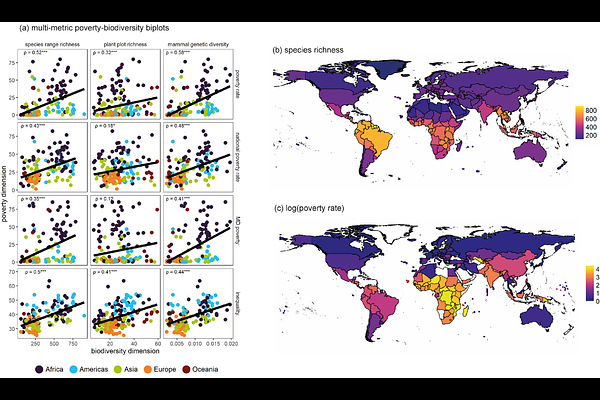Systemic bio-inequity links poverty to biodiversity and induces a conservation paradox

Systemic bio-inequity links poverty to biodiversity and induces a conservation paradox
Waldock, C.; Nguyen, V. T. H.; Awuor Owuor, M.; Samwel Manyanza, A.; Seehausen, O.
AbstractBiodiversity is declining globally, and poverty rates are not improving, so sustainable development initiatives aim to jointly reduce biodiversity loss and alleviate poverty. These initiatives expect biodiverse ecosystems to benefit people if nature were adequately valued in financial terms: thereby countries can use their natural wealth to reduce poverty. This logic predicts an eventual negative relationship between biodiversity and poverty, to be reached through conservation-minded economic development. We show that, paradoxically, the opposite pattern prevails, countries with highest poverty reside in the world\'s most biodiverse regions but the most financially prosperous countries reside in low biodiversity regions. We quantitatively resolve this paradox, by modelling biodiversity influences on poverty through historical pathways of colonialism that led to export economies with weak governance and increased poverty rates. This finding supports the proposed \"systemic bio-inequity\" hypothesis. In attempting to solve poverty through conservation, a second paradox emerges: conservation investments align neither with the economic capacity to protect nature nor with the global distribution of biodiversity. Overall, our findings better link systemic, historical and institutional drivers of modern poverty with biodiversity and, unfortunately, undermine the narrative that biodiversity, and its conservation, can underpin future economic prosperity of countries.